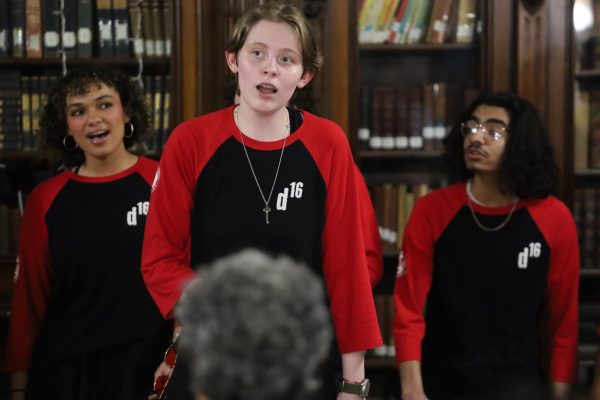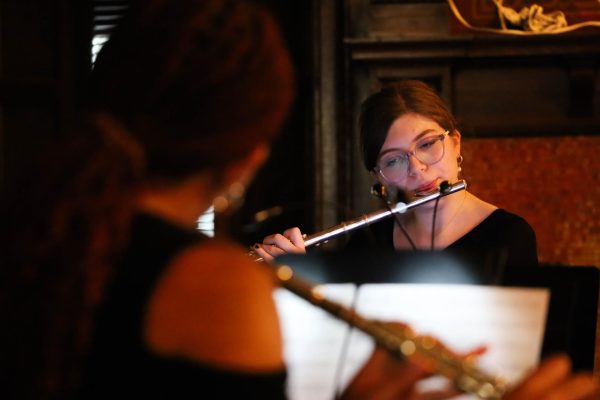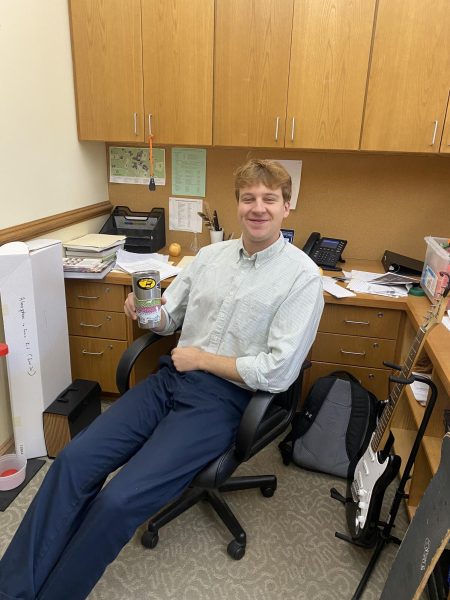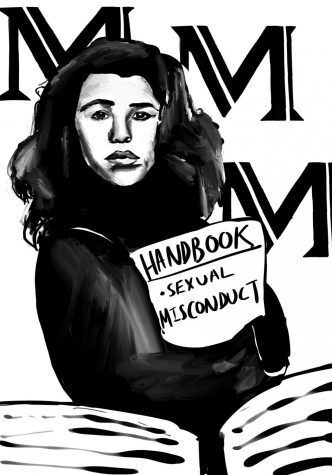If you can’t read the plate, you must vacate
ANDREW LOPEZ INCORPORATED HIS own recent run in with the police to illustrate a lesson he was teaching to his U.S. history class. Some students appreciated the real life example.
May 1, 2023
Flashing red lights and sirens blared when Upper School History teacher, Andrew Lopez, went through a yellow light between Sunnyside and Lyndhurst in Irvington. Lopez had been pulled over by the police. Though fear did not fill his body, anger did.
After a long day at work, Lopez took the usual route home to pick up his kids from school before winter break. Given that Lopez takes this route almost every day, he knew that there was construction near that specific light and police were stationed nearby. As Lopez approached the light, he noticed it turn yellow but he was already too close to come to a full stop, so he accelerated forward to catch the light before it could turn red.
Soon after Lopez drove through, he was pulled over by the policeman that had been stationary near the light. The officer claimed that he had gone through a red light, which is a moving violation that adds points to his license.
Lopez explained what he did when he was pulled over. He said, “I rolled down the windows, took out my keys and threw them on the dash, turned on the interior lights, and took out my wallet and put it on the dash.” He continued, “That way everything was in front of me. Whatever the police officer needed was in front of me and visible so that way I wasn’t reaching to my waist or reaching into the center console. And he could see inside the car immediately.”
Lopez said he strongly believes that he didn’t run a red light, though the police officer claimed his body cam showed him running it. Lopez didn’t argue with the police officer, he didn’t curse him out, and he didn’t call him a liar; he simply said that he had not done it and would appear in court.
“I knew that the officer was lying. I don’t like the idea that police officers get to lie to people with impunity. It makes them dishonest actors with the public, ” Lopez said.
Lopez then was surprised to read that the ticket was written for something different than what he had been pulled over for. Instead of a ticket for running a light, he received a non-moving violation for his license plate being too dirty to read.
“I know that it is a little faded but it’s an eleven-year-old license plate. It’s readable and legible,” Lopez said. He continued, “Meanwhile, when I’ve been driving around now I have noticed that other people’s license plates are much less legible than mine. There are many that have peeled off paint and numbers that are missing, that you can’t read and they’re just driving around with it,” Lopez said.
When Lopez was given the ticket for the dirty license plate, he asked the officer if he wanted him to clean the license plate. Lopez said the officer responded with “No, it’s weird.” I was highlighting the fact that Frazier v Cupp (1969) allows police to engage in “deceptive interrogation” tactics – which they now do in a lot of interactions with the public. So when a police officer says “that’s a lawful order” or “you have to provide ID”, sometimes that’s not true and you don’t. They use our unfamiliarity with laws and our civil rights against us. And they shouldn’t. Even on the little stuff – like “dirty license plates. — Andrew Lopez
After this event, Lopez consulted with Upper School History teacher and former corporate litigation lawyer, Ben Thorn. Thorn offered his advice to Lopez. Thorn said he felt that his friend should have just paid the ticket because of the headache of litigating or spending time to go to court as to fight the ticket would be more of a hassle than paying the minimal fine.
Thorn said, “My initial thought was that he should pay the ticket because it was a non-moving violation and I didn’t think it would be that much money.” He continued, “The headache of litigating and spending time to go to court and fight this [ticket] would be worth more than the minimal fine,” Thorn said.
However, Lopez was determined to fight the ticket. After about three months and extensive research, Lopez finally appeared in court in the beginning of April.
The outcome was not what he had expected. Lopez said he had contacted the town clerk prior to his court date and even planned what techniques and arguments he was going to use, but his case was simply dismissed when it was his turn because the ticketing officer did not fill out the proper paperwork.
Lopez would not need to pay the ticket – but he was not happy about the end result. He described what it meant to him. He said, “I didn’t have to pay anything. I’m not guilty. I’m not innocent. They just stopped prosecuting me. It just incentivizes policing to behave this way, which is petty.” He continued, “This is not how a police officer should behave. I wanted my day in court. Now it still feels hollow, because they dismissed my case because of a paperwork error.”
Lopez recounted this story to his 11th-grade U.S. history class. He explained, “ I was highlighting the fact that Frazier v Cupp (1969) allows police to engage in “deceptive interrogation” tactics – which they now do in a lot of interactions with the public. So when a police officer says “that’s a lawful order” or “you have to provide ID”, sometimes that’s not true and you don’t. They use our unfamiliarity with laws and our civil rights against us. And they shouldn’t. Even on the little stuff – like “dirty license plates.”
Junior Jennica Pereiras, is one of his students, noted how his story relates to what they are learning, and the impact his sharing his story had on her. She said, “Recognizing roots of racism and systemic racism is so important, which is exactly what Mr. Lopez did when he told us this personal story. He came to class and was honest with us, which we really appreciate from him,” Pererias said. She continued, “His authenticity as a teacher is what really makes his class more comfortable and relatable to everybody. Not every teacher would share that personal experience. But the fact that he did, really makes a difference in the learning and putting it in perspective with what’s going on in the world right now,” Pereiras said.

























